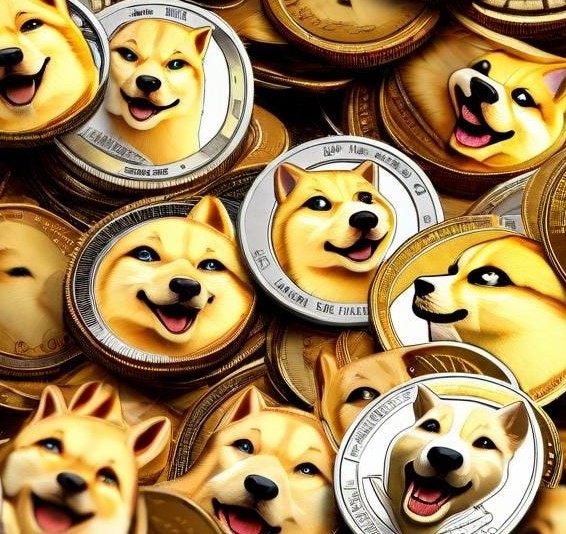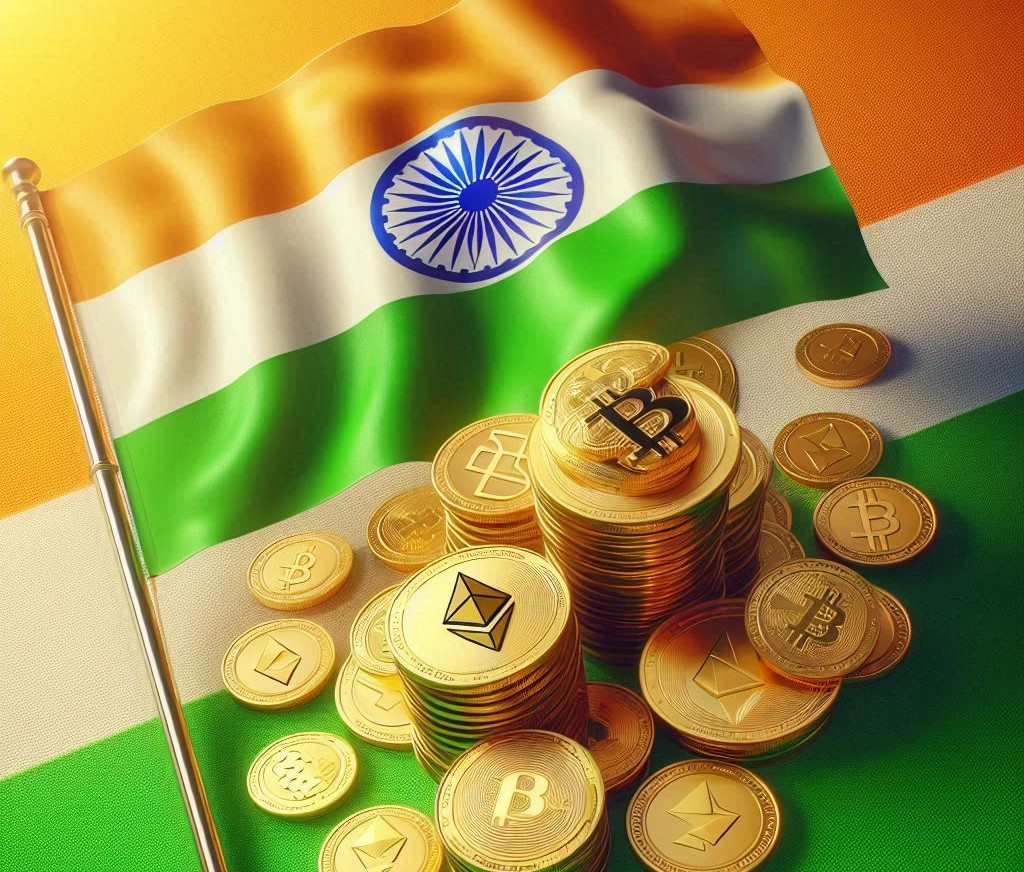Discover the top 10 popular cryptocurrencies in India and uncover how Bitcoin, Ethereum, and other altcoins will shape the future of digital finance in 2024.
Popular cryptocurrencies have become a vital element of India’s fast-evolving financial ecosystem, captivating the interest of tech-savvy investors and enthusiasts.
With discussions regarding regulation, investment potential, and digital innovation, popular cryptocurrencies in India are on the rise.
- 1 The Rise of Popular Cryptocurrencies in India
-
2
Top 10 Popular Cryptocurrencies in India
- 2.1 Bitcoin (BTC) Bitcoin: The King of Crypto
- 2.2 Ethereum (ETH): Powering dApps and Smart Contracts
- 2.3 Tether (USDT): the stablecoin of choice
- 2.4 Binance Coin (BNB): India’s Gateway for Low-Fee Transactions
- 2.5 Ripple (XRP): revolutionizing cross-border payments.
- 2.6 Shiba Inu (SHIB): Shiba Inu: The Meme Coin with a Cult Following
- 2.7 Polygon (MATIC): Polygon: India’s Own Scaling Solution
- 2.8 Cardano (ADA): Cardano: the green cryptocurrency with academic backing
- 2.9 Dogecoin (DOGE): The People’s Memecoin.
- 2.10 Solana (SOL): The Ethereum Competitor with Lightning Speed
- 2.11 Why it is popular in India
- 3 Factors to Consider Before Investing in Popular Cryptocurrencies in India
- 4 How to Choose the Right Popular Cryptocurrencies in India
- 5 The Future of Popular Cryptocurrencies in India
- 6 Conclusion
The Rise of Popular Cryptocurrencies in India
Decentralized finance (DeFi), evolving regulatory frameworks, and technological enthusiasm have all contributed to India’s increased interest in cryptocurrencies in recent years. Let’s discuss the main causes of the rising acceptance of popular cryptocurrencies in India:
- Tech-Savvy Population Fueling Crypto Adoption:
One of the biggest populations of young, tech-savvy people, especially those in the 18–35 age range, can be found in India. This group is willing to try out new financial technology and has an inclination toward the digital world.
This segment has witnessed a quick adoption of NFTs, blockchain technologies, and crypto trading apps. The extensive use of smartphones and the enthusiasm for technology provide an ideal environment for the adoption of cryptocurrencies in India.
- Decentralized finance (DeFi) and peer-to-peer (P2P) platforms:
DeFi systems, which provide financial services such as lending, borrowing, and trading without intermediaries, have gained substantial interest in India. P2P crypto trading has become a popular option for Indian users to avoid traditional banking obstacles.
This decentralized framework has allowed Indians to seamlessly participate in global financial markets, bypassing older systems that are often slow and expensive. DeFi and P2P platforms have made cryptocurrency trading more accessible by charging cheap fees and processing transactions quickly.
- Global trends and India’s thriving startup ecosystem:
India’s strong startup Ecosystem, fueled by blockchain innovation, has contributed to popular cryptocurrencies’ increasing popularity. As part of the global fintech movement, Indian startups have integrated cryptocurrency solutions into daily financial services, allowing users to access decentralized applications (dApps), NFTs, and smart contracts.
These startups, generally driven by visionary entrepreneurs, have helped propel India to the forefront of blockchain and cryptocurrency adoption. Additionally, global trends such as Bitcoin and Ethereum rallies attracted the interest of Indian investors seeking alternatives to traditional assets.
- Regulatory Shifts and Government Stance:
While the regulatory landscape for cryptocurrencies in India has been difficult, recent developments indicate a shift in attitudes. The Indian government and the Reserve Bank of India (RBI) first expressed worry about the possible misuse of cryptocurrencies, notably for illegal activities.
However, discussions about the regulation of crypto assets have developed, with the potential of legalizing cryptocurrency as a “regulated asset” rather than simply prohibiting it.
India’s cryptocurrency regulation is still in its early stages, although there are some encouraging indicators, such as the finance ministry exploring a central bank digital currency (CBDC).
This evolving regulatory structure drives India toward greater transparency in cryptocurrency, fostering innovation while protecting consumers.
Top 10 Popular Cryptocurrencies in India
Popular cryptocurrencies have had a significant impact on India, with an increasing number of investors and traders entering the market. The following is an overview of the top 10 popular cryptocurrencies in India that will dominate India’s cryptocurrency market in 2024.
Some of the popular cryptocurrencies in India are:
- Bitcoin (BTC)
- Ethereum (ETH)
- Tether (USDT)
- Binance Coin (BNB)
- Ripple (XRP)
- Shiba Inu (SHIB)
- Polygon (MATIC)
- Cardano (ADA)
- Dogecoin (DOGE)
- Solana (SOL)
Bitcoin (BTC) Bitcoin: The King of Crypto
Bitcoin remains the most popular and recognized cryptocurrency in India. Despite its volatility, Bitcoin is seen as a safe haven for long-term investors. Indian investors have long regarded Bitcoin as “digital gold,” valuing its scarcity and ability to hedge against inflation.
Its supremacy in terms of trading volume and market capitalization has made Bitcoin the preferred crypto asset among Indian traders.
Why it is popular in India
- High liquidity on Indian exchanges.
- Bitcoin is viewed as a long-term store of value.
- Influenced by worldwide adoption trends and institutional investments.
Ethereum (ETH): Powering dApps and Smart Contracts
Because of its decentralized apps (dApps) ecosystem and smart contract features, Ethereum has a special place in the Indian developer community. Ethereum has emerged as the go-to coin for Indian blockchain developers since it is the most widely used platform for building decentralized applications.
Additionally, Ethereum’s transition in 2022 to a Proof of Stake (PoS) model that is more eco-friendly has increased its attractiveness to Indian investors.
Why It is Popular in India
- Perfect for developers working on DeFi and dApp projects.
- Robust network effects and a vibrant Indian development community.
- PoS use by Ethereum draws ecologically conscious investors.
Tether (USDT): the stablecoin of choice
Tether (USDT), one of the top 10 popular cryptocurrencies in India is India’s most popular stablecoin, and it is valued for maintaining stability in the highly volatile cryptocurrency market. Tether’s value is pegged 1:1 to the US dollar, making it an excellent choice for traders looking to protect their investments from the extreme price volatility of other cryptocurrencies.
USDT is extensively traded on Indian exchanges and serves as a conduit for transferring cash between exchanges and remittances, making it an effective tool for managing cryptocurrency portfolios.
Why it is popular in India
Stability attributed to the USD peg.
Indian exchanges have high liquidity, making trading easy.
Serves as a bridge for trade between different cryptocurrencies.
Binance Coin (BNB): India’s Gateway for Low-Fee Transactions
Binance Coin (BNB) is the native token of Binance, the world’s largest crypto exchange and the leading exchange in India. BNB is primarily used to pay for transactions on the Binance platform, and users who own and pay with the token receive lower costs.
With India’s huge trading volumes, BNB’s low-fee advantage is a significant incentive. Furthermore, BNB’s use case has gone beyond trading, allowing users to participate in Binance’s decentralized applications, making it useful for Indian crypto enthusiasts.
Why it is popular in India
- Offers reduced transaction costs on Binance, making trading more affordable.
- High liquidity and vast utility in the Binance ecosystem.
- Support for decentralized applications and stake opportunities.
Ripple (XRP): revolutionizing cross-border payments.
Ripple (XRP), one of the popular cryptocurrencies in India is famous for its role in transforming cross-border payments. Ripple’s blockchain provides real-time, low-cost international money transfers, which are crucial in India’s remittance-driven economy.
With millions of Indians residing abroad, XRP provides a faster and less expensive alternative to traditional money transfer services. As a result, both retail and institutional investors showed interest in XRP’s ability to address real-world financial concerns.
Why it is popular in India
- Highly efficient for cross-border payments, with shorter transfer times and lower prices.
- Strong institutional support from banks and financial institutions.
- Ideal for a country that relies heavily on remittances, such as India.
Shiba Inu (SHIB): Shiba Inu: The Meme Coin with a Cult Following
Shiba Inu (SHIB), which began as a meme coin, has developed a huge cult following in India, particularly among younger, risk-taking investors. Its notable price action and enthusiastic online community, known as the “Shib Army,” have contributed to its viral success.
Despite its meme origins, Shiba Inu has taken on serious projects, such as launching its decentralized exchange (ShibaSwap). SHIB has grown in popularity due to its low per-token cost, which attracts Indian investors looking to buy huge amounts of crypto at a low price.
Why it is popular in India
- Meme coin appeal with a large community support.
- The low price per token makes it affordable to new and small investors.
- ShibaSwap’s launch and ecosystem expansion increase utility.
Polygon (MATIC): Polygon: India’s Own Scaling Solution
Polygon, formerly known as Matic Network, is a Layer 2 scaling solution for the Ethereum blockchain that aims to improve transaction speeds and lower costs. Polygon, founded by Indian creators, has quickly garnered appeal in India’s crypto community.
It tackles Ethereum’s scaling difficulties, making it faster and more affordable to use, which is critical in India’s price-sensitive industry. Polygon’s robust dApp ecosystem and connections with major worldwide blockchain projects position it as one of India’s most promising cryptocurrencies.
Why it is popular in India
Indian origin with a thriving developer community.
Addresses Ethereum’s scalability difficulties, making transactions faster and cheaper.
Major global blockchain projects and dApps are accelerating their adoption.
Cardano (ADA): Cardano: the green cryptocurrency with academic backing
Cardano (ADA) stands out in the Indian market due to its eco-friendly approach and strong academic base. Cardano is known for its Proof of Stake (PoS) consensus method, which is substantially more energy-efficient than standard Proof of Work (PoW) cryptocurrencies such as Bitcoin.
This ecological approach makes it more appealing to eco-conscious investors. Furthermore, Cardano’s blockchain is based on peer-reviewed academic research, which guarantees scalability, sustainability, and interoperability.
Cardano is an excellent option for Indian investors seeking a cryptocurrency with long-term potential and a low environmental effect.
Why it is popular in India
Environmentally sustainable due to the PoS technique.
Supported by academic research, this product provides trust and stability over time.
Gaining traction among eco-conscious investors and developers building decentralized applications.
Dogecoin (DOGE): The People’s Memecoin.

What began as a joke in 2013 has since become a key player in India’s crypto sector. Dogecoin’s rapid surge to prominence, fueled by celebrity endorsements and social media, has given it widespread acceptance.
Although Dogecoin lacks the technological sophistication of Ethereum or Solana, its simplicity, low transaction fees, and active community have made it a popular choice among Indian traders. Dogecoin’s widespread usage for tipping and microtransactions led to its appeal in India.
Why it is popular in India
- Social media and celebrity endorsements fueled its viral popularity.
- Low transaction fees and simplicity make it ideal for microtransactions.
- Active community and widespread recognition as “people’s crypto.”
Solana (SOL): The Ethereum Competitor with Lightning Speed
Solana has swiftly gained appeal among Indian developers and traders due to its fast transaction speeds and lower fees compared to Ethereum.
Solana is known for its innovative Proof of History (PoH) consensus mechanism, which can handle up to 65,000 transactions per second, making it one of the world’s fastest blockchain networks.
This efficiency, coupled with low transaction costs, has attracted the interest of Indian developers building decentralized apps (dApps) and Indian traders seeking a cheaper and faster alternative to Ethereum.
Why it is popular in India
- High transaction speed and cheap fees entice developers and traders.
- Scalability and the dApp ecosystem place it in competition with Ethereum.
- Popular for DeFi, NFTs, and staking.
Factors to Consider Before Investing in Popular Cryptocurrencies in India
The Regulatory Landscape
India’s cryptocurrency regulatory landscape is still developing, so it’s critical for investors to keep up with the latest laws and regulations. The government and the Reserve Bank of India (RBI) have sent conflicting messages regarding cryptocurrencies, ranging from exploring regulations to suggesting outright bans.
Investors need to be informed about any impending regulations that may have an effect on their cryptocurrency holdings. These laws may include taxation, transaction limitations, or prohibitions on specific cryptocurrency kinds.
Volatility of the Market
The price of popular cryptocurrencies is famous for its extreme volatility, frequently experiencing rapid fluctuations in a short amount of time. Indian investors ought to utilize risk management techniques, including diversifying their portfolios, placing stop-loss orders, and only making investments they can afford to lose.
It is crucial to comprehend the cyclical nature of cryptocurrency markets and the factors, such as international laws or market mood, that affect these swings.
Utilization and Practicality
Since not all cryptocurrencies are made equal, it’s critical to evaluate the coins’ practicality in the real world. Strong use cases for popular cryptocurrencies in India, such as those in NFTs, dApps (decentralized applications), or DeFi (decentralized finance), increase their likelihood of long-term growth.
For example, Solana is gaining traction in the DeFi market, while Ethereum has a robust ecosystem that supports smart contracts. Seek out coins that solve real-world problems in society or fulfill vital functions in the digital economy.
Developer and Community Engagement
A robust developer community is frequently a sign of a cryptocurrency’s future viability. Active development communities increase the likelihood that popular cryptocurrencies will keep evolving and getting better.
Those with smaller or less active communities, on the other hand, run the risk of stagnating or going out of trend. An excellent example is Bitcoin, which, in contrast to smaller coins with less active development teams, has a large community constantly working on improving its system.
How to Choose the Right Popular Cryptocurrencies in India
Here are factors to consider when considering choosing one of popular cryptocurrencies in India:
Regulatory Considerations
Make sure the cryptocurrency you choose complies with India’s current legal framework while making your selection. Future taxes or regulatory difficulties may affect some popular cryptocurrencies in India.
Therefore, it’s best to consult with legal professionals or keep an eye on official channels for updates. Make sure the cryptocurrency exchange you choose is also KYC (Know Your Customer) compliant and registered with SEBI.
Analyze Market Volatility and Trends
Analyze the prevailing market trends prior to choosing a cryptocurrency. A coin may yield profits in the short term, but it has no potential to grow in the long term.
Examine price charts, volatility indexes, and long-term market data when looking for a stable investment. Steer clear of hype and concentrate on coins that consistently perform well.
Consider Usefulness and Practical Applications
Prioritize popular cryptocurrencies in India with real-world uses or ones that are well-liked in sectors like digital art, gaming, and finance when selecting one.
For instance, Ethereum is a flexible option for investors due to its support for a large ecosystem of dApps, whereas Bitcoin is frequently thought of as a store of value.
Review Developer and Community Engagement
Lastly, review at the development roadmap, GitHub repository, and community forums for the coin on sites like Reddit and Twitter. A cryptocurrency’s likelihood of success in the future typically corresponds with the existence of active communities, which signify continued interest and development.
The Future of Popular Cryptocurrencies in India
What lies ahead for popular cryptocurrencies in India?
India is at a turning point in its cryptocurrency history, and the direction that regulations go will have a big impact on digital assets in the future. It’s an exciting but uncertain environment for inventors and investors because of the possibility of positive growth and regulatory challenges.
- Regulatory Predictions: The Indian government is now debating crypto regulations; future developments may bring about a more organized system designed to prevent financial crime and promote innovation.
Some experts predict that the government will enact regulations centered on taxation, investor protection, and KYC/AML compliance rather than implementing an outright ban. A more defined legal framework might draw institutional investors and increase the safety of cryptocurrency investments.
- Areas of Blockchain Technology Growth: Beyond cryptocurrency, blockchain technology has the potential to transform several Indian industries completely. Some possible growth areas include the adoption of blockchain in finance for faster and more transparent transactions, education for secure credentialing, and logistics for better supply chain management.
The decentralized applications (dApps) that propel innovation in various sectors could be powered by popular cryptocurrencies.
- Adoption of Popular Cryptocurrencies in India is Driven by Youth: The youths play a major role in the innovation and adoption of popular cryptocurrencies in India. As more tech-savvy people embrace blockchain and cryptocurrency, businesses and developers are coming up with creative applications in the crypto sector.
The broad adoption of digital currencies is being aided by younger generations’ exploration of DeFi, NFTs, and cryptocurrency trading. This implies that young people with a tech mindset who are keen to experiment and develop in this field would probably be the ones driving popular cryptocurrencies in India in the future.
Conclusion
While these popular cryptocurrencies in India will dominate the market in 2024, interested investors should conduct extensive research before investing.
Cryptocurrencies remain highly volatile, and regulations in India are evolving, investors should weigh the risks and rewards carefully and base their decisions on long-term trends such as blockchain adoption, DeFi, and NFTs.



